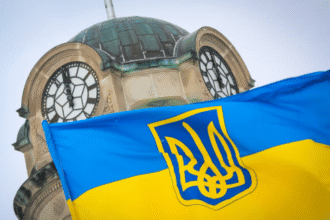22-year-old university student Filippo Turetta has been condemned to life in jail for the horrific murder of his ex-girlfriend, Giulia Cecchettin. This historic case has drawn national interest. The November 2023 murder has spurred a national debate about gender violence, femicide, and the ingrained problems with patriarchy in Italy.
Doctor Disciplined After Medical Ethics Breach in Murder Case
Turetta killed 22-year-old biomedical engineering student Giulia Cecchettin from the Venice province as he could not accept their relationship ending. More than seventy times, he stabbed her and left her body thrown in the bottom of a ditch covered in plastic bags. Turetta fled following the murder, setting off a week-long national hunt that concluded with his detention in Germany. Soon afterwards, he was deported to Italy.
How did Giulia's father react to the sentence the court rendered?
Gino Cecchettin, Giulia’s father, told the press his impressions at the end of the trial. “Nobody is giving me Giulia back, so I am neither more relieved nor sad than I was yesterday or than I will be tomorrow,” he said, clearly expressing grief not amenable to any statement.
His remarks caught the suffering the Cecchettin family had over the past year. Gino underlined, therefore, that the real fight for justice is in the larger society’s struggle against gender-based violence, even the life sentence. “We look ahead and hope another dad won’t find himself at my place,” he stated, understanding the need for group action in facing this widespread problem.
What Set Off the Tragic Death?
The events of Giulia Cecchettin’s death presented a sad picture of an emotionally and mentally violent relationship. Giulia had posted a list called “15 reasons I had to break up with him,” detailing the controlling actions of her ex-boyfriend in the months before her death. Turetta required she assists him in studying, protested if she gave him fewer emoji hearts than usual, and insisted she texts him nonstop. He even objected to her seeing her therapist and sought to keep her apart from friends.
Gino, Giulia’s father, detailed the possessiveness that had crept into their relationship. “He would be negating her need always to be involved or her own space. Emphasizing the emotional toll his daughter had gone through, Gino remembered constantly needing to know everything she said to friends or even her therapist. “We discovered later that she felt responsible for his suffering and thought she was the reason it started.”
Giulia suffered greatly from Turetta’s dominating actions. Turetta revealed his reliance on Giulia and his difficulty in accepting their split in an 80-page declaration penned in infantile handwriting from prison. “I felt like I could accept no other outcome,” he said. His guilt-ridden comments in the statement provided a window into the warped feelings that preceded the fatal outburst.
Giulia had confronted Turetta on the evening of the murder, telling him he was overly reliant and needy. Unable to understand the rejection, Turetta became furious when she tried to escape the automobile. “I yelled that it wasn’t fair, that I needed her,” Turetta said during his police questioning. “I was self-serving; I only now see this. I never considered how unjust that was to her and the bright and fantastic life she was about to lead.
How did the words of Giulia's family start a national conversation on patriarchy?
The murder of Giulia Cecchettin set off a more extensive discussion in Italy on the social factors influencing such aggressive behaviour. In her moving and provocative interview, Giulia’s sister Elena said Filippo Turetta was “the healthy son of a patriarchal society,” not a “monster.” Her comments struck a deep chord, and the issue of patriarchy—once considered an old-fashioned idea—suddenly took the front stage in talks on male aggression and gender roles in contemporary Italy.
“If you are a man, you are part of a system that teaches you that you are worth more than women,” Gino Cecchettin, Giulia’s father, stated. He detailed the poisonous dynamics driving Turetta’s behaviour, noting that in such relationships, “everything needs to go through you… and so a patriarch can’t be told: ‘I don’t love you anymore, because it goes against his sense of ownership.'”
The murder had an especially significant impact since it featured a young guy from an apparently “respectable” family, therefore compounding the story of male violence. Turetta was essentially a product of the very mechanisms that support control and possessiveness in relationships.
What political response has Giulia's murder elicited?
Politicians and public personalities throughout Italy expressed their anger over Giulia’s murder and the more general social problem it raised. Some government officials, including Giuseppe Valditara, the minister of education, nonetheless minimized the importance of patriarchy in Italy nowadays. In a divisive speech, Valditara claimed that patriarchy had vanished from Italy and proposed that the marginalization brought on by illegal immigration was somewhat responsible for the increase in sexual assault.
Elena Cecchettin spoke fast, pointing out the remarks made by the minister: “A decent, white Italian man assassinated Giulia. My dad acted to stop bloodshed. What is the government doing?
From the feminist organization Differenza Donna, Elisa Ercoli also weighed in, stressing the need to tackle psychological violence as well as physical abuse. “We think bruises are the problem, but underhand psychological violence is the issue in many situations,” she said, pointing out that the case had resulted in a notable rise in calls to their helpline from worried parents.
Many activists and opposition politicians, like left-wing Genoa councillor Francesca Ghio, have insisted that Prime Minister Giorgia Meloni’s government act more forcefully to stop gender-based violence, notwithstanding the increase in knowledge. Ghio herself said that observing the courage of the Cecchettin family motivated her to speak out about her own terrible experience with sexual violence. “Their suffering is becoming love and action. We cannot just watch,” she stated, reiterating that more had to be done.
What effects will Giulia's death have in the long term?
Giulia’s father, Gino, considered her legacy when the trial ended, and Turetta was punished. “I realized I can’t rewind life and time,” he remarked. And I realized nobody can ever give me Giulia back.”
Now a symbol of the continuous fight against gender violence, Giulia’s tale still motivates action and campaigning throughout Italy. Through their heart-wrenching personal tragedy, the Cecchettin family aims to spread awareness of the perils of dictating relationships and the need for education in managing emotions and relationships.
The tragedy that claimed Giulia’s life serves as a sobering reminder of the terrible effects of possessive and aggressive actions in close relationships, and the struggle for reform in Italy and worldwide is far from done.








